Enriching your diet with nutrient-dense and low-calorie food is one of the keys to healthy eating. As per the Dietary Guidelines, a healthy eating pattern should include consuming a variety of vegetables, grains, fat-free diary, protein foods and most importantly fruits. Among all the exotic fruits, this article explores the simple, affordable good old bananas. A surprisingly fulfilling and nutritious healthy food for everybody.
Bananas, just like wheat, rice and corn, are one of the staple foods all over the world. You can find different varieties of bananas as well as have various ways to incorporate them into your diet. They are packed with important nutrients that facilitate proper functioning of the body.
Wondering how many carbs and calories they contain? Does the consumption of bananas aid weight loss? Looking for unique, easy and fancy low-calorie banana recipes? Here are all the details of this popular fruit.
NUTRITION FACTS OF A BANANA
CALORIES
Different serving sizes of bananas contain varying amounts of calories.
According to the US Department of Agriculture :
An extra large banana of 152 grams contains 135 calories.
A large banana weighing about 136 grams has 121 calories.
A medium-sized banana of 118 grams contains 105 calories.
A small banana weighing about 81 grams contains 72 calories.
CARBS
Carbohydrates are one of the three main nutrients that provide energy. It comes in various forms such as starch, sugar, and fiber. Bananas are mostly made up of complex carbohydrates, including resistant starch, natural sugar, and fiber. The greener the banana, the more starch it contains. The starch in bananas promotes the growth of probiotics in our digestive system, hence fostering digestive health. When bananas ripen, sugar increases and resistant starch gradually decreases.
A small banana of 101 grams contains 23 grams of carbs. For a 7-8 inches medium-sized 108 grams of banana, there is around 27 grams of carbs. A large banana of 136 grams contains 31 grams of carbs.
These portions of bananas contain 2-4 grams of fiber as well, so simply deduct the amount of fiber to get “net carbs”.
PROTEIN
When we talk about protein, it’s not just simply the animal source food products. Plant sources of protein albeit in relatively small amounts does also facilitate the health of our planet and your health. Bananas are low in protein level but the quality of protein is high. In a 100-gram serving of banana, it contains 1.09 grams of protein.
FAT
Along with carbohydrates and protein, fat as well belongs to the group of macronutrients. The Dietary Guidelines for Americans suggests 35% of total calorie per day from fat for adults. Bananas are very low in fat. There is just less than ½ grams of fat per 100-gram serving of banana.
FIBER
Fiber is another form of carbohydrates that is essential for regulating blood sugar, normalizing the level of cholesterol and aiding in healthy digestion of the body. Bananas are relatively rich in dietary fiber. Pectin is one of the fibers found in bananas. In a medium-sized 108 grams of banana, it contains 3.1 grams of fiber.
SUGAR
The amount of sugar in bananas varies according to their ripeness. Green or unripe bananas have the lowest natural sugar content, unlike ripe bananas. An overripe banana contains 15.8 grams of sugar, and a ripe banana contains 12.23 grams of sugar per 100 grams of a serving.
POTASSIUM
Fruits, particularly bananas, are an excellent source of potassium which is a vital mineral for your body. Potassium helps support a healthy nerve and muscle function as well as maintain normal blood pressure. Bananas are well known for its high potassium level. In a medium sized banana, it typically contains 422mg of potassium.
MAGNESIUM
Bananas are also considered magnesium-rich food. This mineral plays an important role in regulating blood sugar level, facilitates muscle and nerve relaxation as well as promotes healthy bones and DNA synthesis. 27 mg of magnesium is contained in a 100-gram of banana.
TYPES OF BANANAS
Surprisingly, there are more than 1000 different varieties of bananas cultivated around the globe. Here are four popular types of bananas:
Cavendish Bananas
Cavendish bananas are the most widely exported bananas in the globe. They are the typical bananas found in your local grocery store or farmer’s market. Cavendish bananas are long and slightly sweet. Nearly all bananas sold in the United States and Europe are of this variety.
Lady Finger Bananas
Lady Finger Bananas, also known as baby bananas, are 4-5 inches long on average with a light yellow skin and creamy flesh. They are sweeter and smaller than the cavendish bananas. You can make portion-controlled snacks, especially for kids, with this type of banana.
Cooking Bananas
Cooking bananas such as plantains are of high starch and low sugar content. They are generally used in savory dishes. Cooking bananas are mostly boiled, fried or roasted.
Red Bananas
This type of banana has a very distinctive reddish-purple peel color. They have light pink colored flesh with a hint of raspberry sweetness. When they are red, they are ready to eat. Just so cool and super irresistible! Have you tried it?
BANANA PRODUCTS AVAILABLE IN THE MARKET
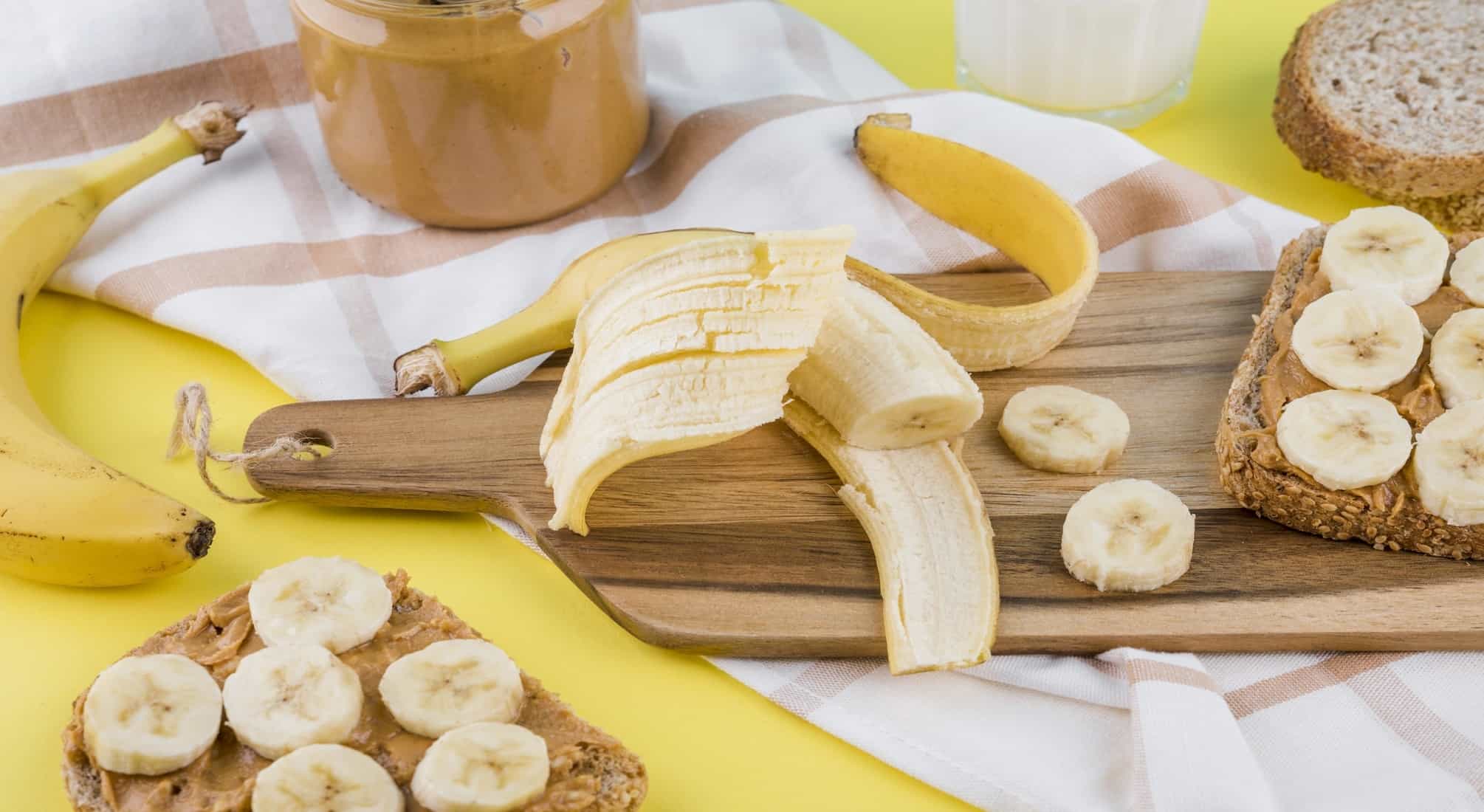
Banana Chips
These crispy thin slices of banana are mostly consumed as snacks or desserts. They are usually produced through deep-frying, baking and sometimes dehydrating the unripe banana to give it a crisp texture. The number of calories in a 100-gram banana chip is 520. When consuming, you may coat them with sugary syrup, spices or even salt.
Banana Flour
A baking product that is made from green, unripe bananas. Banana flour is low in glycemic index, hence won’t spike blood sugar levels. It is a wonderful alternative that is both gluten-free and nut-free. Banana flour is also a good source of resistant starch.
Banana Ketchup
Banana Ketchup is a delicious condiment made from mashed banana and various spices. It gives a hint of sweet and spicy flavor. Banana Ketchup is mainly produced in the Philippines and exported to leading countries like the USA, UK, Middle East, and Asian countries. One tablespoon of banana ketchup gives 2 grams of carbohydrates and 7 calories.
HEALTHY & LOW-CALORIE BANANA RECIPES
Banana Cappuccino
A low-calorie and low-fat smoothie recipe. Serve yourself a healthy sip of this energy booster. Full of delight and packed with nutrients. One serving of banana cappuccino has 212 calories.
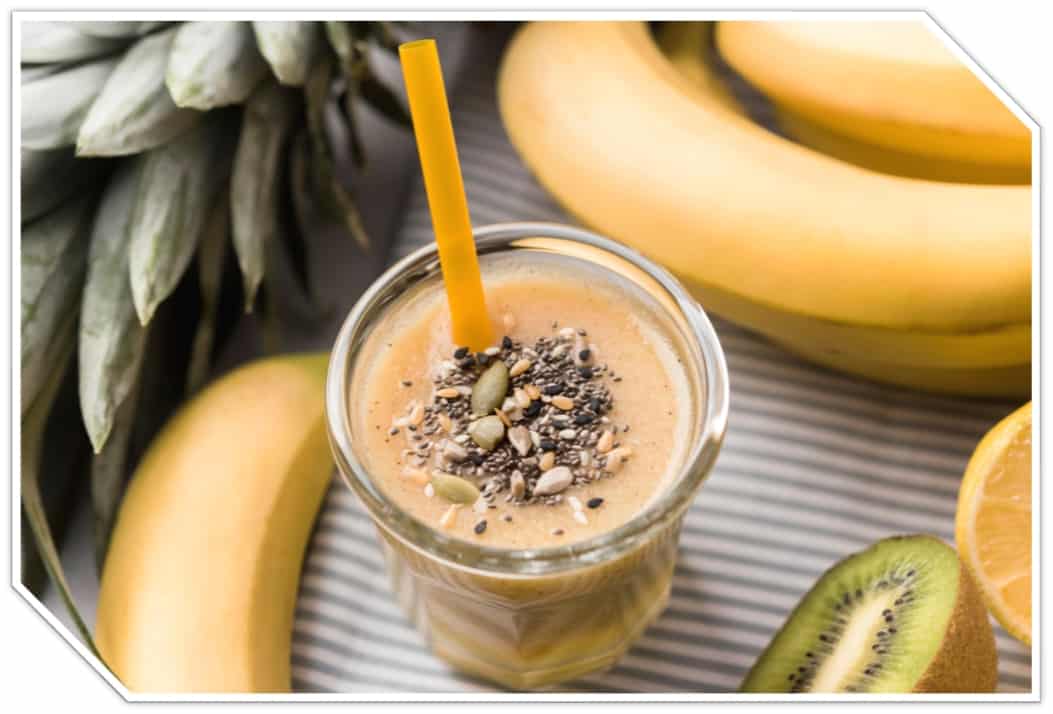
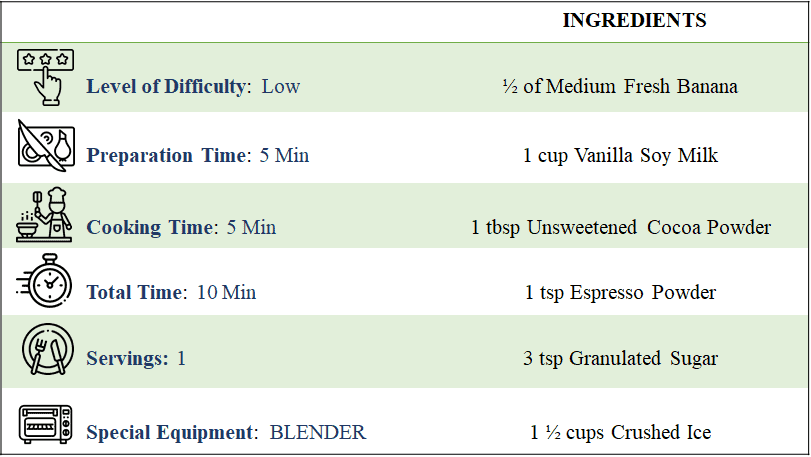
DIRECTIONS:
- Blend the banana with vanilla soy milk and granulated sugar. Then add in crushed ice.
- Add 1 tablespoon of unsweetened cocoa and 1 teaspoon of espresso powder.
- Let it blend until a think and smooth consistency is achieved,
- Your Banana Cappuccino is ready to serve~ Enjoy.
NUTRITION PER SERVING:
Each serving has 212 Calories, 39.3g Net Carbs, 7.6g Protein, 4.2g Fat, 4.6g Fiber, 520.6mg Potassium and 161.5mg Sodium.
Banana Chips with Guacamole Dip
Vegan and gluten-free banana chips are just so easy and fun to prepare! With the use of unripe plantains, this healthy snack blends well with the classic avocado-dip. One serving of this recipe has 198 calories.
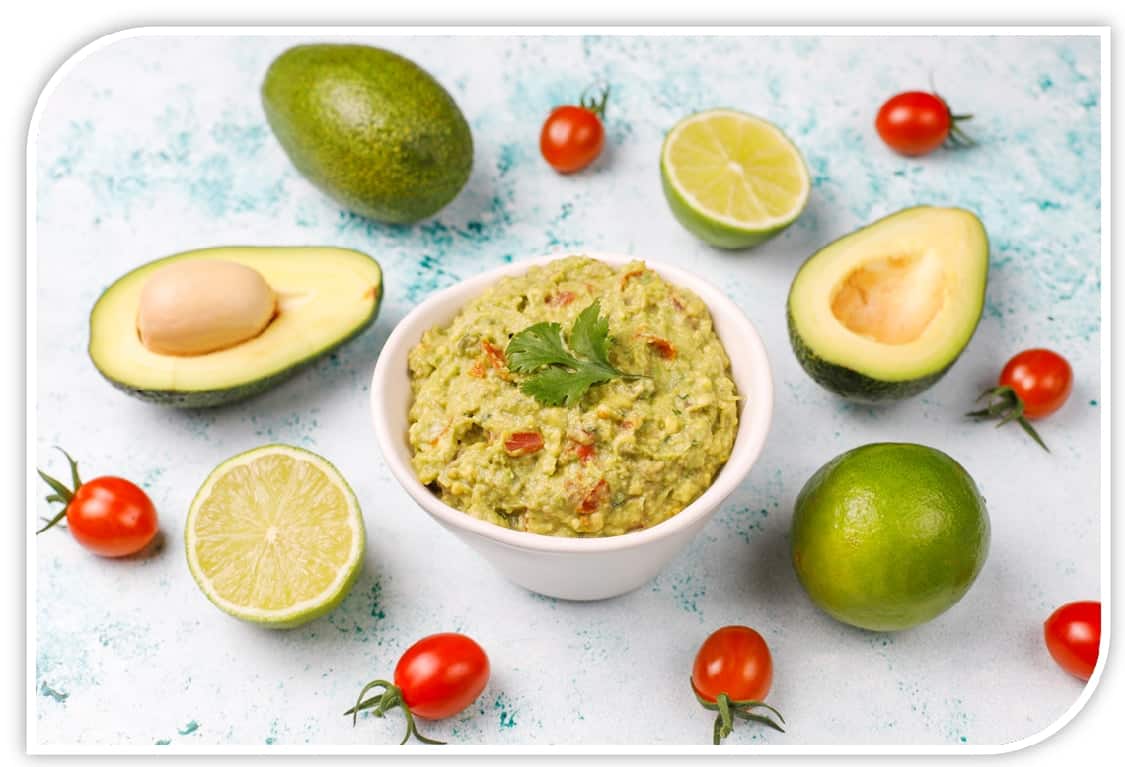
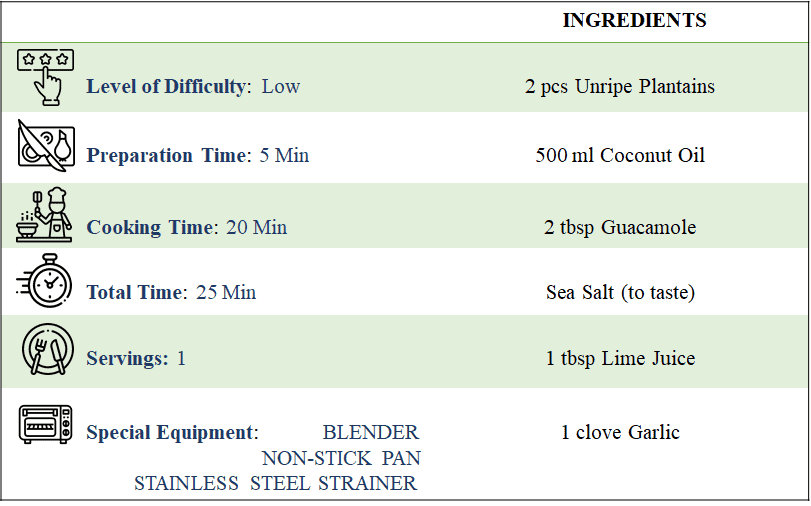
DIRECTIONS for BANANA CHIPS:
- Cut the plantains into very thin slices.
- Deep-fry the plantain slices in the cooking oil (coconut oil).
- Remove from the frying pan when the chips turn into golden-brown.
- Strain to remove excess oil.
- Set aside.
DIRECTIONS for GUACAMOLE DIP:
- Mix the guacamole, garlic and lime juice in the blender.
- Add salt to taste.
- Your Banana Chips with Guacamole Dip recipe is ready. Serve the guacamole dip with the banana chips. Enjoy!
NUTRITION PER SERVING:
Each serving has 198 Calories, 22.3g Net Carbs, 3.5g Protein, 13g Fat, 4.1g Fiber, 200.3mg Potassium and 305.6mg Sodium.
Low-Calorie Baked Banana Doughnuts
Coated with Spiced Sugar
Incredibly delicious and healthy banana doughnuts baked to perfection! Just too good to miss out. One serving of this recipe has 143 calories.
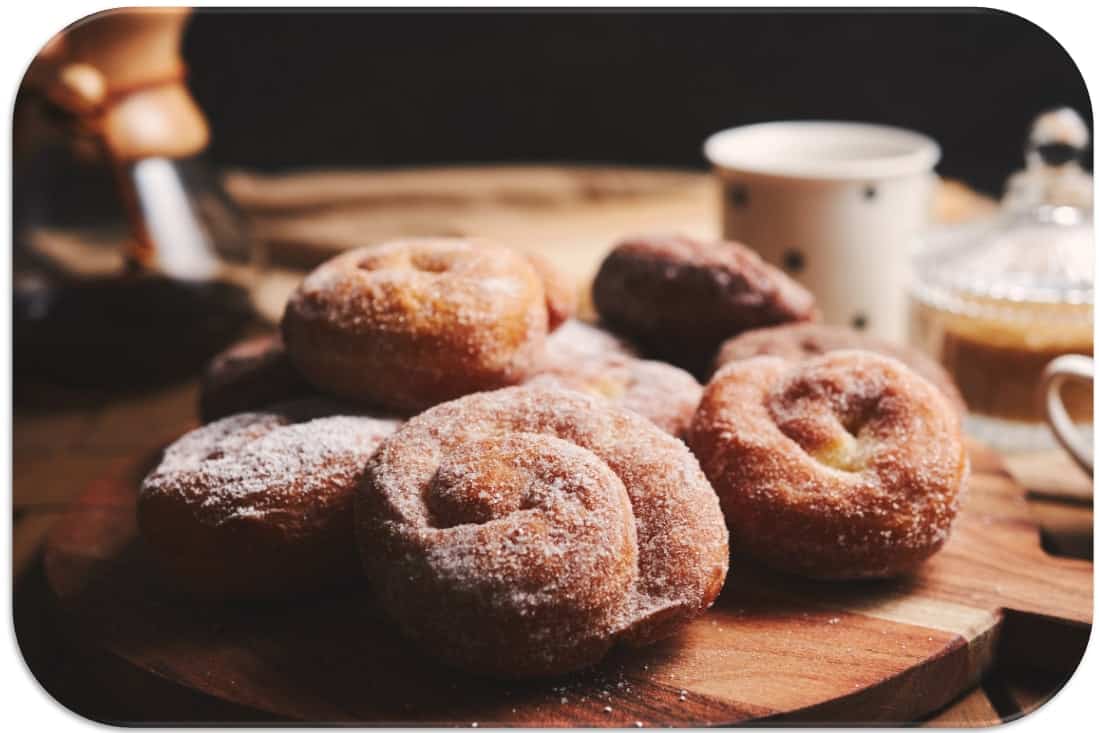
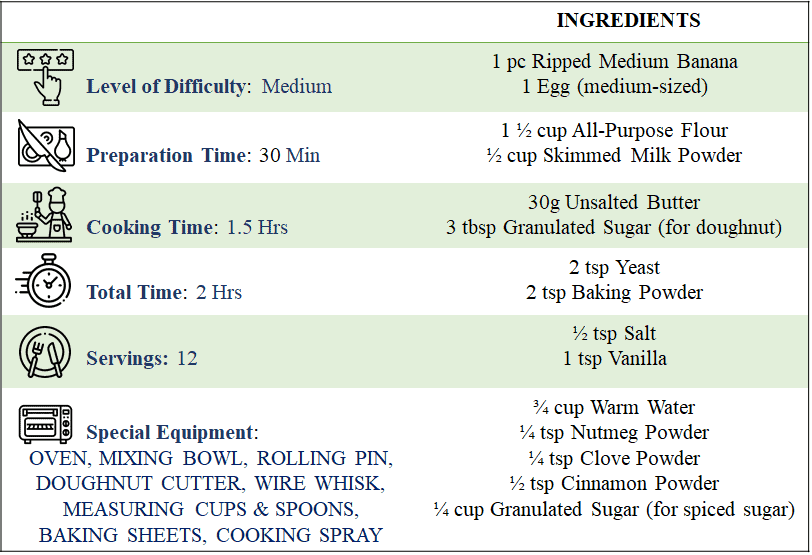
DIRECTIONS for SPICED SUGAR:
- Mix together the granulated sugar, cinnamon powder, clove powder and nutmeg powder.
- Set aside.
DIRECTIONS for BANANA DOUGHNUTS:
- Preheat the oven to 350 degree Fahrenheit.
- Put the yeast in warm water and let it rise for 5 minutes.
- Mash the banana in a large mixing bowl. Add in butter, vanilla and egg into the mashed banana.
- Further add in 1 cup of all-purpose flour, baking powder, skimmed milk powder, sugar and salt.
- Mix the yeast mixture.
- Gradually add the remaining all-purpose flour until the dough no longer sticks to the bowl.
- Knead the dough for 5 minutes then let is rest for 1 hour.
- Then place the dough on a clean flat surface. Use a rolling pin to flatten the dough.
- Create circular shapes with holes using a doughnut cutter.
- Place the doughnuts on a greased baking sheet.
- Place the baking sheet inside the preheated oven and bake for 10-15 minutes or until the doughnuts turn slightly golden brown.
- Coat the doughnuts with spiced sugar.
- Your Low-Calorie Baked Banana Doughnuts are ready to serve! Enjoy~
NUTRITION PER SERVING:
Each serving has 143 Calories, 13.5g Net Carbs, 4.5g Protein, 2.5g Fat, 0.5g Fiber, 52.5mg Potassium and 236.7mg Sodium.
HEALTH BENEFITS OF BANANAS
1. Foster Digestive and Colon Health
Bananas are a good source of fiber. Pectin and resistant starch present in bananas promote healthy bacteria in your stomach which aids digestion. Consuming bananas is indeed a simple way to get the digestive system on the right track.
Besides, a comparative study carried out to examine the roles of resistant starch and non starch polysaccharides shows that resistant starch goes into chemical reaction inside our stomach which helps in the movement of probiotic organisms and gives a protective effect against colon cancer. This boosts our immune system and helps fight against any infection as well.
2. Strengthen Your Heart
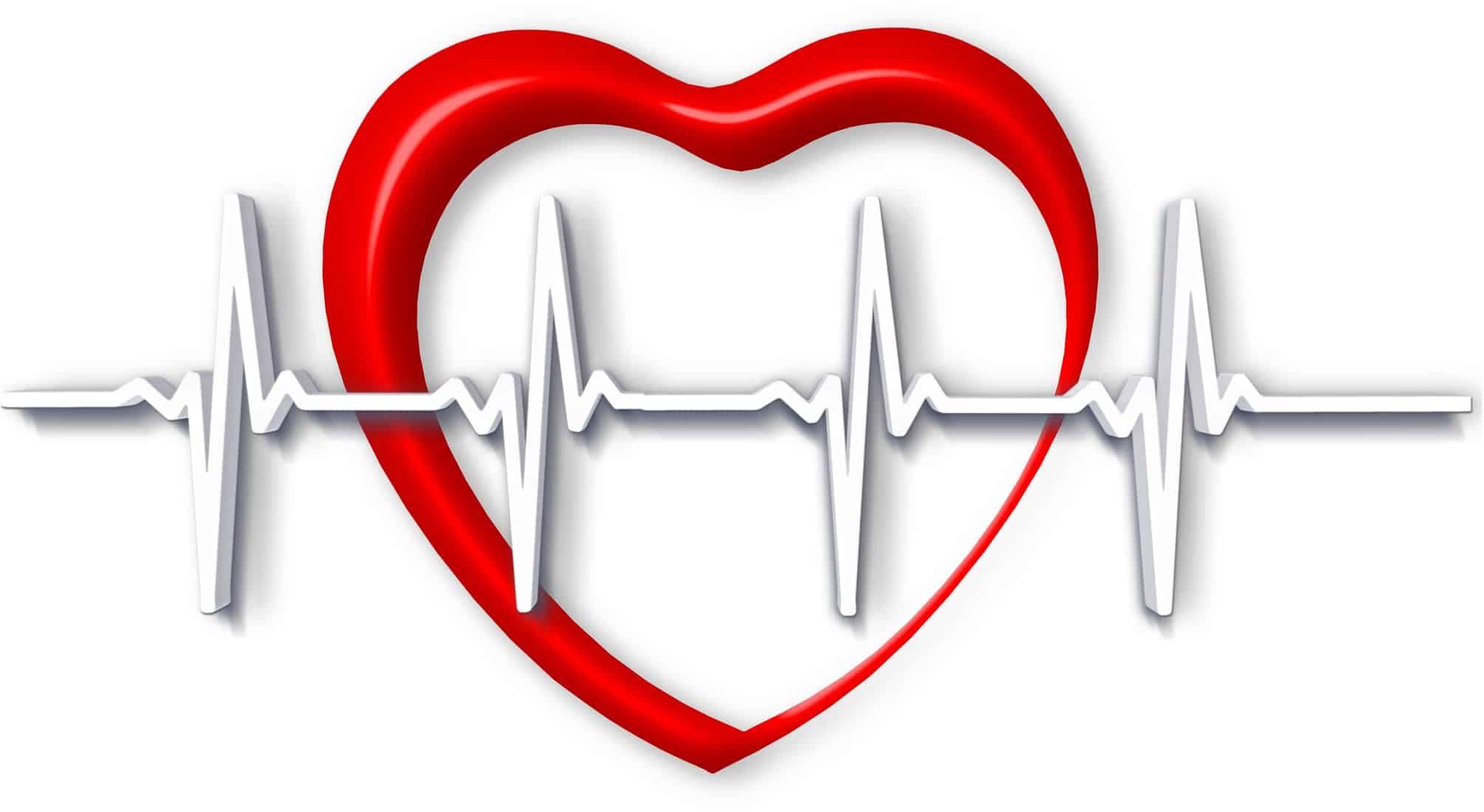
Bananas are known to be a good source of potassium, an essential nutrient for the proper functioning of the heart and kidneys. Several research studies suggest that consuming potassium-rich foods help reduce the risk of high blood pressure, stroke as well as cardiovascular disease. As such, daily incorporation of bananas into your diet shall foster your heart health. However, for individuals with impaired kidney function or who are on medication, it is not recommended to consume too much potassium-rich food like bananas as this might lead to high blood pressure or heart related risk.
3. Regulate Blood Sugar Level
Hyperglycemia or commonly known as elevated blood sugar level affects people with diabetes. The essence of managing diabetes lies in consuming balanced and healthy meals. Incorporating high-fiber, low-glycemic food like bananas greatly helps you maintain a normal blood sugar level.
The glycemic index ranks foods baked on how quickly they raise the blood sugar levels. Low-GI foods are absorbed and digested slowly, hence causing a gradual increase in sugar levels instead of large blood sugar spikes. The GI of bananas ranges between 42-62 depending on the ripeness. This shows bananas are beneficial in controlling blood sugar and could help prevent blood sugar spikes.
4. Reduce Risk of Diseases
Bananas have been an effective diet tool in managing different diseases. Bananas are one of the best sources of antioxidants and phytochemicals like phenolics, carotenoids, biogenic amines, and phytosterols which help promote good health. Recent studies suggest that this bioactive compound found in bananas helps protect your cells against free radicals that could lead to cancer. Besides, another study shows that consuming diet high in dietary fiber has an association with a decreased risk of getting colon cancer. These suggest that eating bananas may help manage and control the risks of getting diseases.
5. Fight Stress and Anxiety

Stress is one of the leading global mental health issues. According to a survey by American Psychological Association, 80% of working adults feel stress on the job and nearly half mention they need help in coping with stress. Well, there are a number of ways that can help reduce and manage stress such as exercise, deep breathing, relaxation of muscles, sharing and so on. Diet can as well play a significant role in fighting stress and anxiety.
Researchers have found that bananas, specifically the Cavendish-type banana contains a high amount of Dopamine in both the peel and flesh. Dopamine acts as a signaling tool that activates Serotonin (or known as happy hormones), which stabilizes the mood and relaxes the body from high stress levels. The next time you’re feeling stressed out, remember to grab a cavendish banana, it will certainly help regulate your dopamine levels!
6. Facilitate Weight Management
The worldwide obesity rate has nearly tripled since 1975 as per the World Health Organization. In 2016, around 13% of the total world’s adult population were obese. Obesity greatly increases the risk of developing diseases such as cardiovascular diseases, musculoskeletal disorders or even some cancers.
Bananas contain plenty of fiber which aids weight loss. Consuming bananas are actually very filling, hence prevent feelings of hunger and subsequent overeating. When digested, bananas become a resistant starch. Several studies show that obese or overweight individuals had a reduction in their food intake when they consumed resistant starch. This suggests that including bananas in your diet tends to reduce appetite to consume more food which helps facilitate weight management.
HEALTH RISKS OF BANANAS
Generally speaking, bananas are beneficial to your health if consumed in moderation. When you over-consume them, there are chances of getting adverse effects.
1. Carb Over-Consumption
In a green or unripe banana, the prime source of carbs comes from starch. As the banana ripens, the starch ultimately converts into sugar. Hence, by the time you consume a ripe banana, a large proportion of the calories might be coming from sugar. If you consume a great number of bananas per day, this will lead to carb over consumption which could make blood sugar more difficult to control for people with diabetes or prediabetes.
2. Allergy
Consuming bananas may trigger allergic reactions in some people. Bananas contain natural rubber latex. When an individual with hypersensitivity to this organic compound consumes bananas, it may cause allergic reactions. A study suggests that avoiding latex-containing products and food such as bananas help relieve latex allergic symptoms.
Consuming bananas in moderation is the best way to reap the most benefits. One to two bananas a day is likely fine for most healthy people. Be sure to include other nutrients such as lean protein, healthy fats, vegetables as well as other fruits in your meals for a healthy and balanced diet.
Always consult your doctor or medical professional before making any changes to your own lifestyle or diet.
KEY TAKEAWAYS
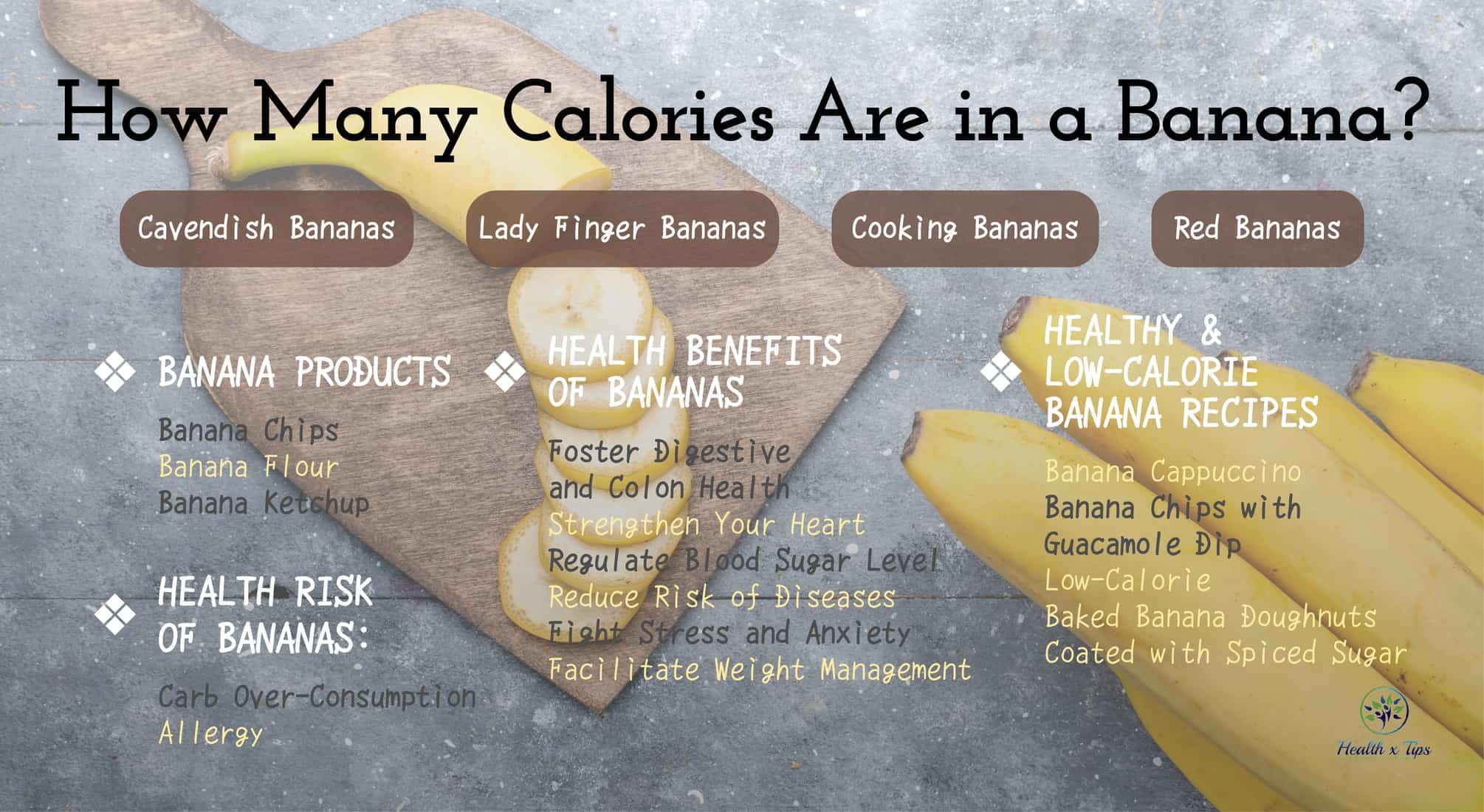
QUICK ANSWERS TO CALORIES IN A BANANA
How many calories are in a small banana?
On average, a small banana of 6-7 inches, weighing around 101 grams, has 90 calories. You may add a small banana to your morning breakfast.
How many calories are in a medium banana?
A medium banana of 7-8 inches, weighing around 118 grams, has 105 calories.
How many calories are in a large banana?
A large banana of 8-9 inches, weighing around 136 grams, has 121 calories.
How many calories are in a mashed banana?
A cup of mashed banana, weighing 225 grams, has 200 calories.


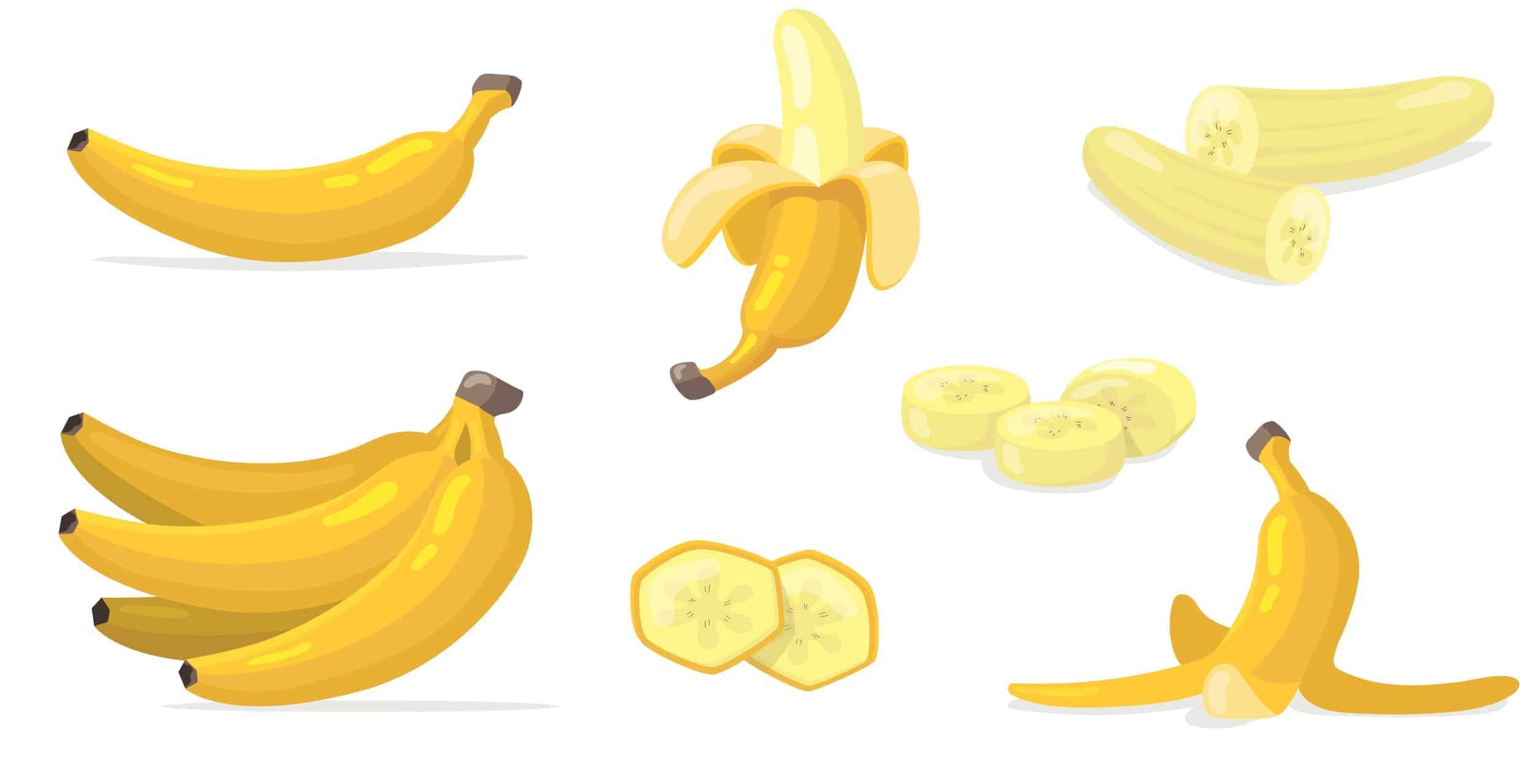



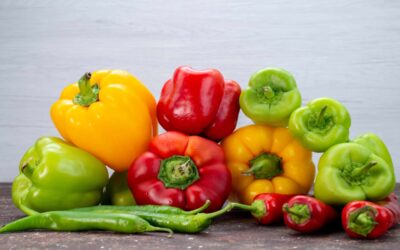
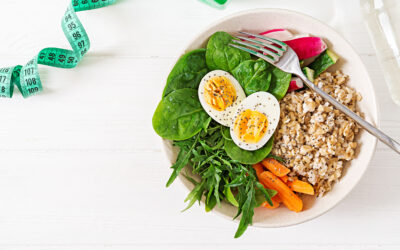
0 Comments